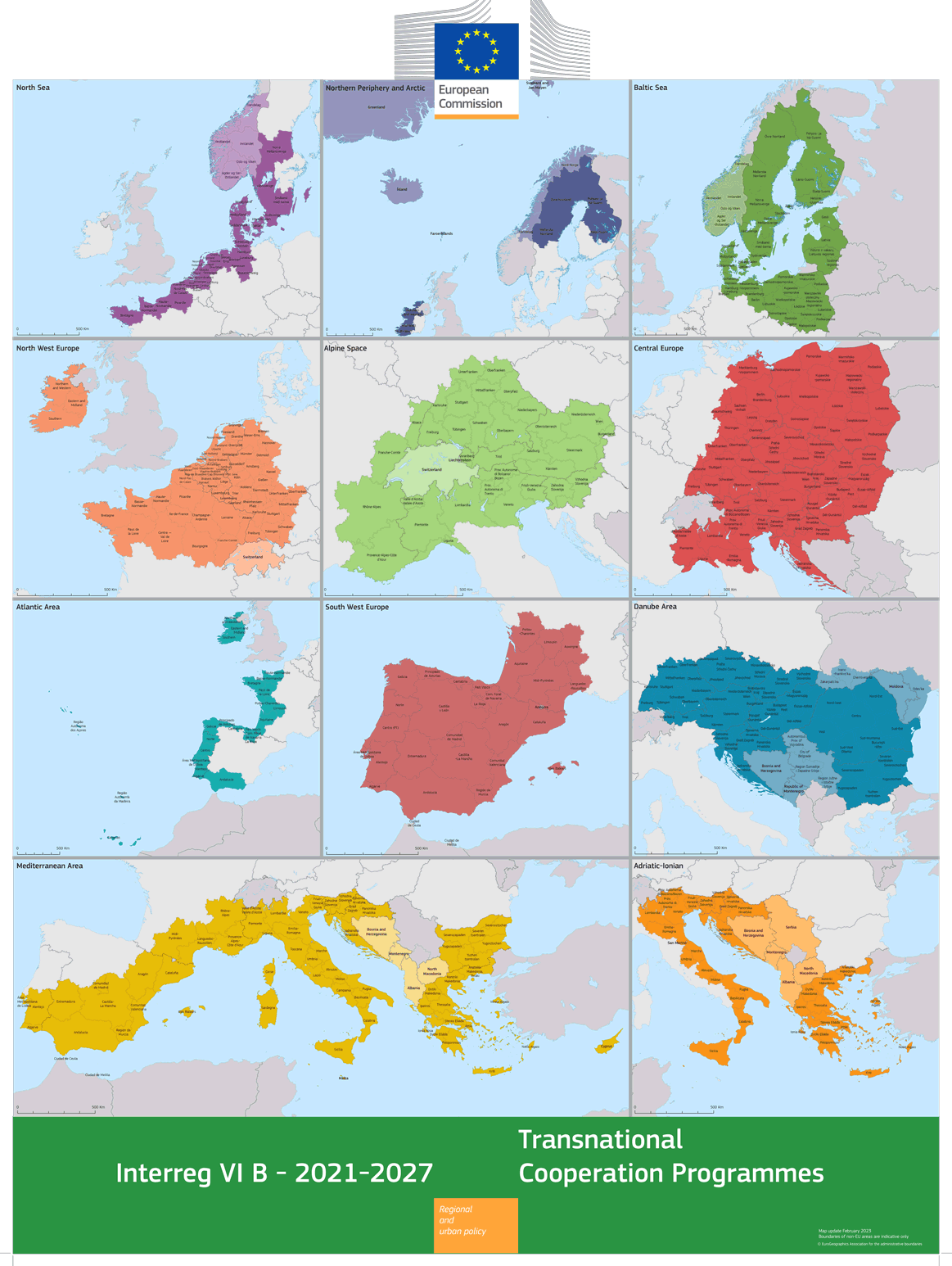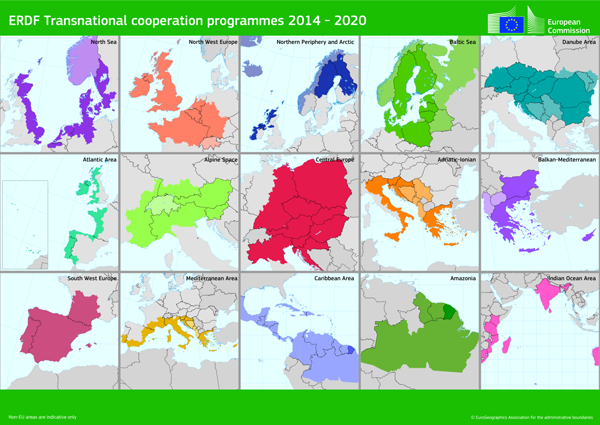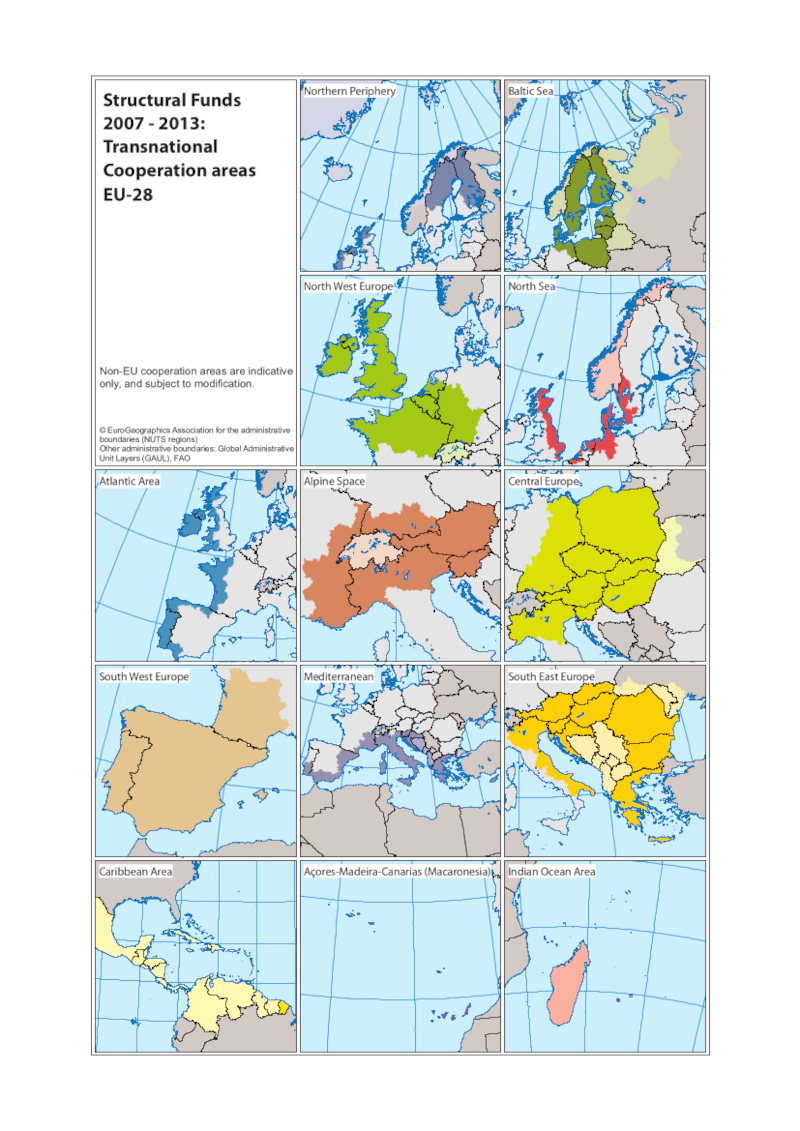Interreg B - Transnational cooperation
Transnational cooperation, known as Interreg B, allows for cooperation over larger transnational territories or around sea basins.
It involves national, regional and local programme partners in Member States, but also in some programmes, non EU countries (third countries such as Iceland or Lichtenstein), Enlargement and Neighbourhood partner countries, and OCTs (The Overseas Countries and Territories), with a view to achieving a higher degree of territorial integration. Transnational cooperation implemented by the outermost regions is subject to a separated strand.
Like all Interreg programmes, it aims at promoting better cooperation across countries within the designated regions to find efficient solutions to common territorial, economic and social challenges, which are too broad to be dealt with efficiently at a national level.
Interreg B supports a wide range of project investments related to innovation, the green and digital transition, accessibility, digitalisation, urban development, public sector innovation and interoperability etc. The transnational programmes add an important extra European dimension to regional development, leading to agreed priorities and a coordinated strategic response within the countries in the programme area. In particular, the principles of shared ownership and cooperation on equal footing will remain at the core of the 2021-2027 cooperation programmes on the external borders of the European Union.
They particularly contribute to achieve the following goals:
- Innovation, especially networks of universities, research institutions, SMEs;
- Environment and climate change, especially sustainable green and blue economy, water resources, flood management;
- Digital connectivity and sustainable transport;
- Sustainable regional development, especially in terms of education, labour markets and cooperation;
- Cultural heritage and sustainable tourism development;
- Capacity building and governance;
- People-to-people actions and engagement.
The legal provisions for 2021-2027 reinforce transnational programmes’ link with strategic cooperation framework. Therefore, transnational programmes with the same geography of EU Macro Regional Strategies like the Baltic (EUSBSR), the Danube (EUSDR), the Adriatic and Ionian (EUSAIR) and Alps (EUSALP), contribute to their priorities and objectives (at least 80% of their allocation) and enhance institutional capacity of public authorities and stakeholders to implement macro-regional strategies, including by supporting the management of their governance.
Interreg VI B 2021-2027
With a budget of almost 1.5 bilion EUR, the 14 transnational Co-operation programmes for 2021-2027 are boosting strategic cooperation actions on large scale territories in Europe and beyond.
Three of them are benefiting of a large IPA contribution, namely the programme Interreg IPA Adrion, Interreg Danube Region and Interreg Euro-Med. All of those programmes are allowing cooperation between EU Member States and IPA countries.
We count also transnational Interreg NEXT programmes, like Interreg NEXT MED which covers Mediterranean sea basin, from Spain to Lebanon, or Interreg NEXT Black Sea Basin. These programmes receive NDICI funds support.

* cooperation with Russia suspended
Interreg V B 2014-2020
Interreg B covers 15 cooperation programmes. It is delivered through the European Regional Development Fund (ERDF) with EUR 2.1 billion for the period 2014-2020.
Co-operation programmes for 2014-2020

* cooperation with Russia suspended
Interreg IV B 2007-2013
There are 13 transnational co-operation programmes for 2007-2013

